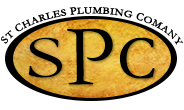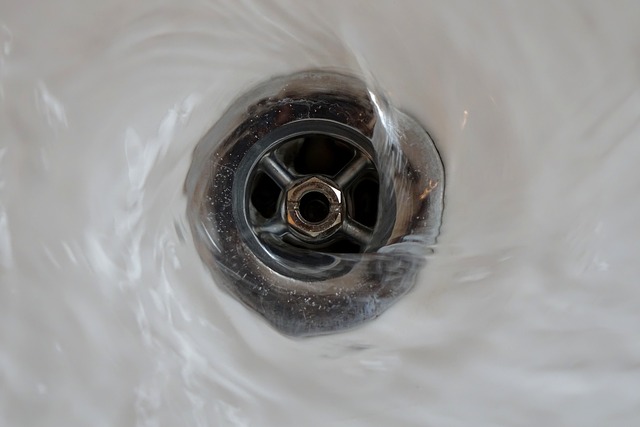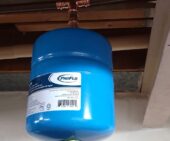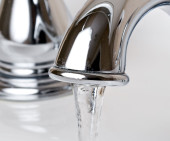In modern-day homes of today, plumbing that works without any problems is often taken for granted. We flush our toilets and open our taps countless times a day without giving it a second thought. But when a drain is backed up, you'll quickly know all about it.
Plumbing is a home commodity that lasts for years on end, but without giving it a thought every now and then, this could lead to serious problems. Here's how to avoid clogged drains and other plumbing issues with a little preventative care...
Simple Preventative Care to Avoid Clogged Drains
Avoiding a clogged drain, overflowing toilet or a dreaded sewerage backup doesn't take much effort. In fact, you generally don't need to do much to ensure your plumbing operates as it should besides using common sense.
Here are a few simple preventative habits you should adopt to avoid any plumbing disasters...
1: Flush Your Drains Each Month
Your plumbing and pipes see a lot over the years. Over time, this constant flow of water and waste creates a build-up matter (also known as gunk!) inside your pipes. But if this build-up becomes too thick, this can lead to clogged drains.
It's important to clean out and flush the drains in your house once a month. Use an enzyme-based cleaner and avoid chemical-based cleaners - this damage your pipes.
Otherwise, you can concoct your own homemade solution of baking soda, vinegar, and a little warm water. Pour it down the drain, let it sit for 15-minutes, then rinse with boiling water.
2. Cooking Fat Doesn't Belong Down the Drain
This is one of the worst things you can do to clog up your drains. Make sure to pour cooking fats into a disposable container, not down the drain! Cooking fats congeal and harden as they cool down. This means they become solid masses of gunk, mixed with other debris, which eventually clogs your drains.
The same goes for forcing bits of food or waste down your kitchen sink. These bits of debris can pile up too and clog pipes.
3. Use a Washing Machine Lint Catcher
Your washing machine is another hotspot for drainage problems. Lint build-up accumulates after each washing, causing a very real problem for drain systems. The lint travels through the washing machine house and collects in your drain.
To avoid this, make sure to attach a lint catcher to the end of the drain hose which is attached to your washing machine. A mesh lint trap can be found at any local hardware store.
4. Brush Out Your Loose Locks Before Showering
Another major culprit in drainage issues is the accumulate of hair that travels down the shower drain. A good way to avoid excessive hair fall when washing hair in the shower is to give it a good brush beforehand. This way all loose hairs outside of the shower and not down your drain, which eventually plugs it up!
The same goes for pet washing. It may be tempting to wash your dog in the shower or bath based on convenience and comfort. But their coats are far thicker than human hair and can quickly cause drain blockages.
5. Don't Empty DIY Waste Down Your Sink
Doing a few DIY home repairs around the house? Try to avoid emptying or rinsing tools covered in joint compound, sand or cement in your sink. These products tend to harden when mixed with water and can build-up on the inside of your pipes. What's more, hardened cement inside your drain is extremely difficult to remove, causing major clogged drain woes.
6. Scrub Your Sink Stoppers
Most modern-day homes are fitted with pop-up stoppers in their sinks in order to close the drain when needed. These stoppers are actually a magnet for dirt and debris, which ends up going down your drain.
Remember to give your sink stoppers a thorough scrub and clean to rid them of excessive dirt that could eventually clog your drains.
7. There's No Need to Flush Everything
This is a no-brainer for most homeowners but it's still a fair point to remember. Modern-day sewerage systems have come a long way over the years, but flushing personal products down the toilet is still not a good idea.
Some of these products may include dental floss and feminine hygiene products. Even though they appear to flush easily, they could get snagged on something inside your piping system, causing a major problem.
Aside from this, these types of products do not compose quickly. This means they can begin to affect a septic tank system or the quality of water in a water treatment facility.
As a general rule, and just to be safe, only toilet paper and human waste should be flushed down the loo!
8. Use Your Garbage Disposal Sparingly
Your garbage disposal is not as advanced as you may think it is. Honestly, the best way to think of it as a good way to process crumbs and small bits of waste.
Some things that just shouldn't go into your garbage disposal include cooking fats, pasta, rice, starchy or fibrous vegetables, coffee ground, and eggshells.
9. Use a Drain Guard
This yet another simple fix, but a drain guard is the best way to prevent your drains from becoming clogged if you live in a busy, manic household. After all, life is busy and sometimes we tend to forget about drain care and maintenance.
Use drain guards in the busiest rooms of your home that see the most traffic, such as the kitchen and main bathrooms.
In Need of a Master Plumber?
At St. Charles Plumbing Company we are your local go-to experts for all plumbing woes, including clogged drains, leak repair, frozen pipes- you name it.
We specialize in both residential and commercial plumbing issues. So be sure to get in touch, whether it's an existing problem or much-needed maintenance!





